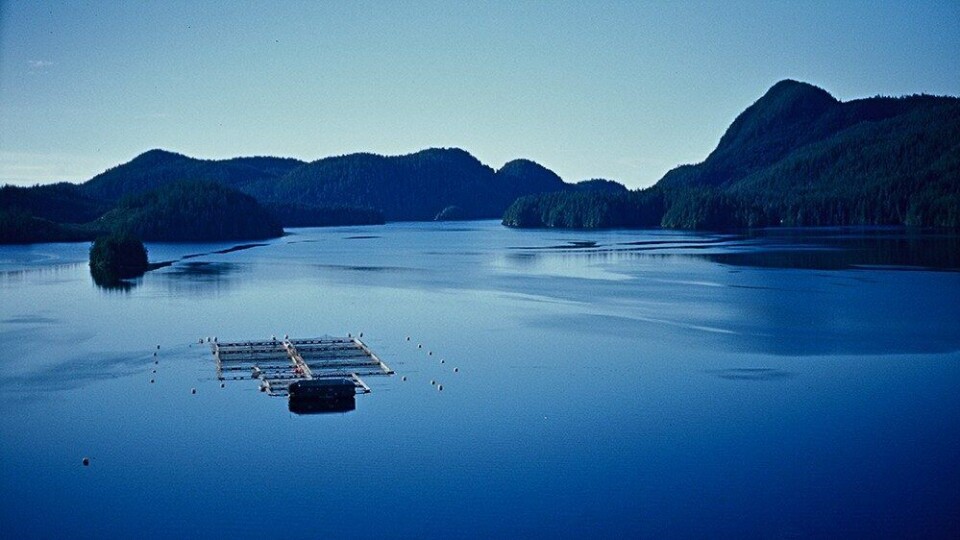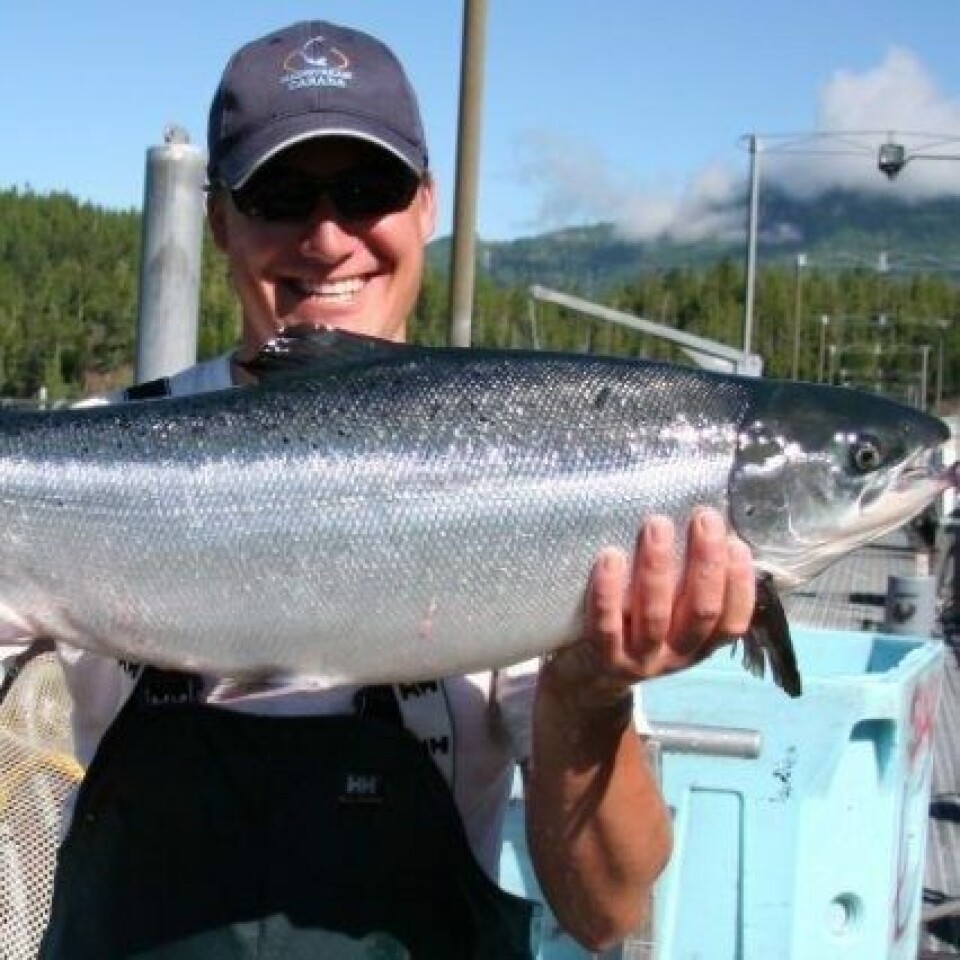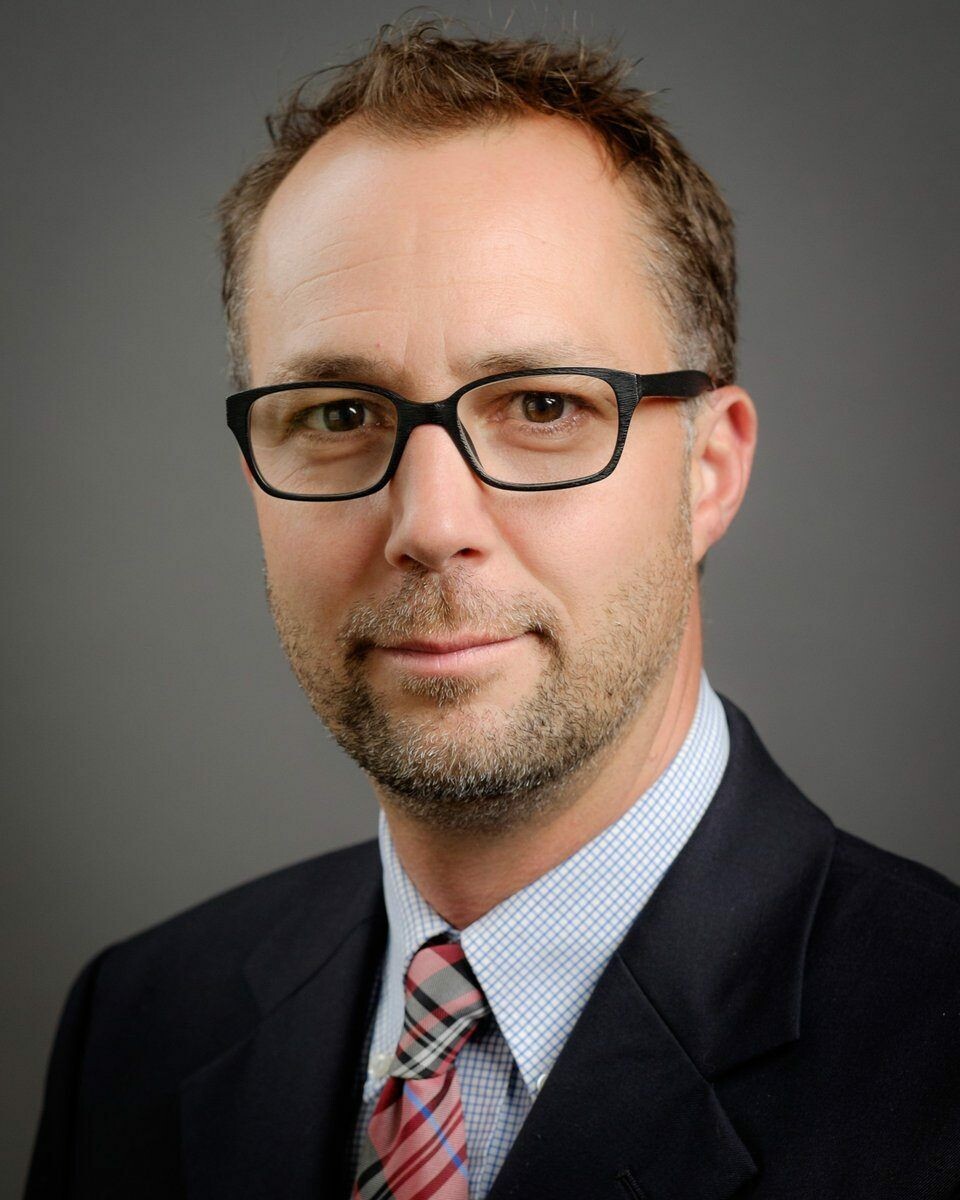
Salmon chief slams BC ‘municipal virtue signalling’
A Canadian salmon farming executive has accused delegates from British Columbia’s local councils of ‘municipal virtue signalling’ after they passed a resolution urging the provincial government to shift the industry to on-land closed systems.
James Costello, area manager for Cermaq Canada, made the comment in a social media post after the decision by the Union of BC Municipalities (UBCM) at its annual conference in Whistler.
The resolution, proposed by the City of Victoria, urged the province to start consultations with First Nations government, local governments, conservation groups, and industry on a plan to transition to closed-containment aquaculture.
‘200km from a farm’
The move “represents the evaporation of the social licence for the open-net fish farms to be operating in the oceans of British Columbia,” said Kwikwasut’inuxw Haxwa’mis chief Robert Chamberlin, who is also the vice-president of the Union of BC Indian Chiefs.

Commenting on the resolution on LinkedIn, Costello said: “I find it interesting that the City of Victoria, which is roughly 200km or more from any BC salmon farm, and would suffer no negative impact whatsoever to its local community or economy should they be removed, feels it necessary to put forward a motion such as this.
“Unfortunately, the communities that engage in aquaculture are outnumbered by those which may potentially feel the need to enact a form of Municipal Virtue Signalling at the UBCM forum. This is not even NIMBY'ism, as those poised to move towards the ‘evaporation of the social licence’ for farms in BC are, for the most part, talking about someone else’s backyard.”
BC Salmon Farmers’ Association (BCSFA) spokesman Shawn Hall told The Star Vancouver that forcing the industry on-land could mean pushing it out of BC altogether.

“A move to land-based salmon farming would essentially shut down the BC industry putting almost 7,000 British Columbians - many of them living on Vancouver Island north of Victoria - out of work,” said Hall. “It’s an important industry providing really important food.”
Earlier this week BCFSA chief executive John Paul Fraser wrote an opinion piece in the Times Colonist pointing out although on-land farming had a part to play in fish farming, it hadn’t yet been a success on a large scale and also came with “significant environmental impacts”.
‘Huge amounts of electricity’
“Moving all of Canada’s current ocean-based salmon farming to land would require that we pave over about 159 square kilometres of farmland and pour concrete tanks on them,” wrote Fraser. “Then we’d have to fill those tanks with four billion litres of water, and use huge amounts of electricity to replicate the currents farmed fish need, and which naturally exist in the ocean.”
He concluded: “In the end, the UBCM has no direct authority over salmon farming. That falls to the provincial and federal governments. However, they have influence. As responsible elected officials, UBCM delegates owe it to their voters to get educated before voting to shut down such an important industry.”
Local waterways
The resolution passed by the UBCM argues that many open-net fish farms were established in Indigenous territories without adequate consultation and alleges “the proliferation of open-net fish farms with non-native fish species threatens local waterways and wild fish species, undermining the economic, social and ecological well-being of local communities”.
It calls for consultations to include a “just transition” for workers who would be affected by shifting the industry from open-net pens in the ocean to land-based systems.
A second resolution, proposed by Campbell River municipality where much of BC’s salmon farming industry is centred, was also passed by the UBCM. It urged the province to “ensure all decisions with regards to the management of all fisheries [including aquaculture], and protection of the natural environment, are made based on current data, technology, science and traditional knowledge”.























































